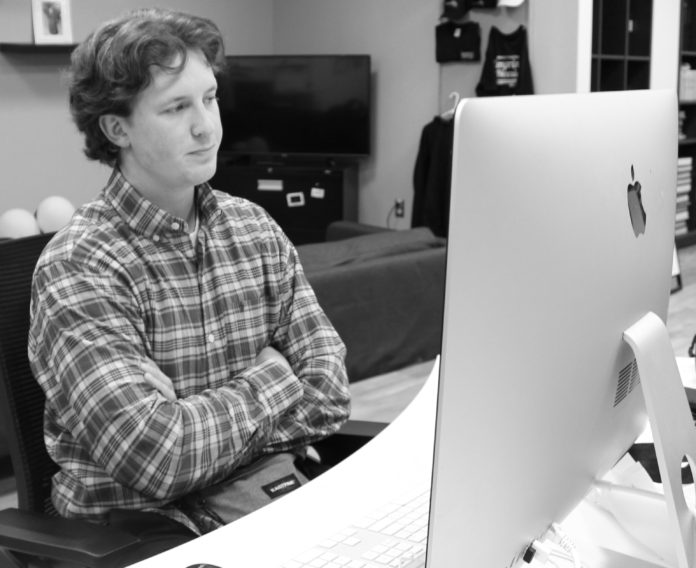Quinton Lucyk is demanding the right to say, ‘no’ to jobs he doesn’t want. When he refused to work for a company he didn’t like, he was axed from co-op for two terms. Now, Lucyk is demanding justice and advocating for the rights of students.
Lucyk is a third-year Engineering student and one of many students that face problems with the current co-op system. He believes that employers have an unfair advantage over students, especially because students can only reject one company per term, but companies can reject as many students as they want.
“What are you to do as a student if you cannot say, ‘no’ to a job? Basically, [the issues are] the inability to say, ‘no’ and only having one ‘not interested’ response per term. It unjustly ships UW students to employers that they don’t want to work for,” Lucyk said.
In this way, students can be forced into less than ideal co-op positions.
For example, Lucyk was accepted to work in a company in Toronto, but wanted a higher wage than they were offering. Although Lucyk and the company split amicably, the school penalized him for not taking the job. Lucyk believes that there should be more control in students’ hands.
“You end up working for an employer who you don’t want to work for and your co-op term isn’t as good as it could’ve been if you were able to have full control over who you work for. Or at least, in who you don’t work for,” he said.
In addition, information on what to do in different problematic situations is limited. For Jinjin Li, a third-year Arts and Business student, relief was short-lived when her offer was rescinded late in the co-op application period. She found little to no information online about what to do in her situation.
“I was never prepared for that to happen … I didn’t find any information [with a] search on the WaterlooWorks website,” she said. “If there was information on things to do if this situation happens then I can totally understand that maybe you need to prepare people, but if there is limited or even no information on the website, what is the student supposed to do?”
Li was fortunate to have friends and career counsellors that were able to help her navigate the situation, but not all students have that luxury. Li said that although the system is subpar, she has no choice but to work with it.
“I feel like it puts a lot of pressure on students to be able to solve situations that weren’t supposed to happen in the first place,” she said. “I’ve gotten used to the point where things happen in life and your duty as a university student here is just to like be able to respond as quickly as possible to what comes your way. It sucks, but with the system that is currently built as is [what can we do]?”
Li also said that the WaterlooWorks website is simply not built to manage the large number of student applications that it receives, creating additional stress for students.
The complaints of students have not fallen on deaf ears. Richard Wikkerink, Director of Student and Faculty Relations in UW Co-operative Education (UWCE), said student complaints and feedback are taken very seriously.
Wikkerink said that UWCE is undertaking a project, the Co-op Student Experience Project (CSEP) where employers, faculty, staff, and students are working together to understand and better the co-op student experience.
As part of CSEP, students receive surveys at different points in their recruiting and working terms. These surveys ask demographic, satisfaction, and feedback questions. They also ask students to rank different aspects of UWCE.
“We’re intentionally going out and gathering information on the co-op student experience,” he said. “We’ve heard those requests for flexibility, and for change and we’re doing the [CSEP] to gather data so that we can move beyond the anecdote. The anecdotes are important as they are individual student experiences, but we want to know what is the overall co-op student experience.”
The CSEP involves students at all levels of the process, from testing to analysis of data. The CSEP also includes two students in important positions in the core team, one of whom is hired by Feds.
The CSEP aims to identify the core problems that UWCE needs to address, Wikkerink said.
“Our goal is to … not simply deal with some symptoms, which are important, but [identify] ‘what is the core problem?’” he said.
The CSEP will hold their next meeting in July. They hope to work on solutions and address students’ concerns.
As of now, one of the identified problems is the lack of flexibility in the current system.
For more information on the Co-op Student Experience Project, visit https://uwaterloo.ca/co-operative-education/co-op-student-experience.
































